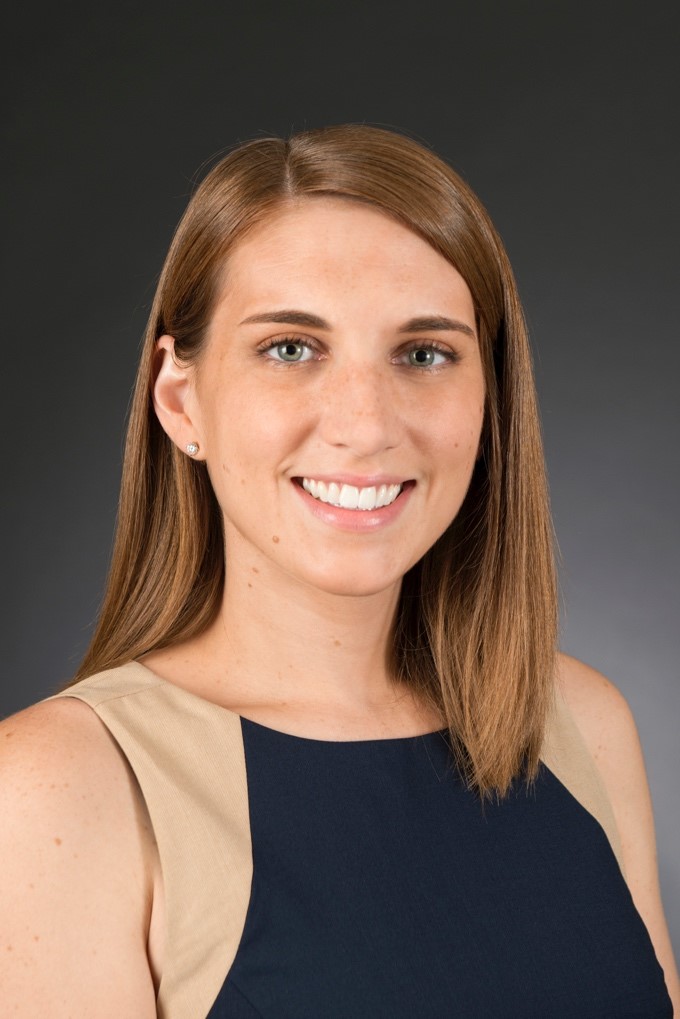May 1, 2023 Addressing the Palliative Care Needs of Patients with Acute Myeloid Leukemia (AML): Primary Palliative Care
DESCRIPTION
Specialty Compared to Oncology delivered Palliative Care for Patients with Acute Myeloid Leukemia (SCOPE-Leukemia) is a cluster-randomized comparative effectiveness trial of primary palliative care versus specialty palliative care in patients with acute myeloid leukemia (AML) and their caregivers. The goal of the trial is to answer a critical question on how to best address the palliative care needs of patients with AML and their caregivers and provide essential data on how healthcare systems can ensure that optimal palliative care services are available for their patients.
As part of this trial, leukemia clinicians (i.e., physicians and advance practice providers) will attend a three-hour palliative care training focused on the following educational objectives:
- Understand the unmet palliative care needs of patients with AML.
- Manage the physical and psychological symptoms experienced by patients with AML.
- Develop strategies to promote effective coping and enhance illness and prognostic understanding in patients with AML.
- Promote shared decision-making and strategies to optimize end-of-life care for patients with AML.
* Please Note: This educational course will be offered on multiple occasions to accommodate the schedule of leukemia clinicians participating across multiple institutions. Leukemia clinicians will attend a single educational training that will last 3 hours. There will be at least 10 sessions throughout the duration of this course.
Target Audience
This activity is intended for Physicians, Nurse Practitioners and Physician Assistants in the specialties of Hematology/Oncology and Hospice and Palliative Care.
Learning Objectives
Upon completion of the training course, participants will be able to:
- Assess the palliative care needs of hospitalized patients with AML.
- Demonstrate effective management of physical and psychological symptoms experienced by patients with AML
- Discuss effective coping and engage in discussions to enhance illness and prognostic understanding in patients with AML.
- Discuss end-of-life care preferences for patients with AML and incorporate strategies to optimize care at the end of life for this population.
- Demonstrate effective collaboration among MD and APP team members when delivering palliative care to patients with AML.
Additional Information
Massachusetts General Hospital
Cancer Outcomes Research Education Program (CORE)
Division of Palliative Care and Geriatric Medicine
Oregon Health and Science University
Medicine and Psychiatry
Mass General Brigham

Primary Palliative Care Model
1:00PM | Welcome and Introductions
SCOPE-Leukemia Overview
| Vicki Jackson, MD, MPH |
1:10 | Key Strategies:
| Areej El-Jawahri, MD |
1:20 | Patient Experience Discovery Exercise
Patient Interview
| Joanna (Jo) Paladino, MD |
2:05 | Palliative Care Domains Two Key Areas-Didactic
| Vicki Jackson, MD, MPH |
2:15 | Conversation Skills Practice Communication Domain
| Vicki Jackson, MD, MPH |
3:00 | Symptom Management Key Symptom Management Approaches Didactic
| Vicki Jackson, MD, MPH |
3:45 | Study Team and Logistics
| Areej El-Jawahri, MD |
4:00PM | Adjourn |
|

Areej El-Jawahri, MD - Course Director
Director of BMT Survivorship Program,
Associate Director of the Cancer Outcomes Research and Education Program (CORE),
Massachusetts General Hospital;
Director of Digital Health,
Massachusetts General Hospital Cancer Center;
Associate Professor of Medicine,
Harvard Medical School
Dr. El-Jawahri graduated from Harvard Medical School and completed her residency training at Massachusetts General Hospital. She subsequently completed her hematology-oncology fellowship at the Dana-Farber Harvard Cancer Center Fellowship Program. Dr. El-Jawahri is an oncologist specializing in the care of patients with hematologic malignancies and those undergoing hematopoietic stem cell transplantation and adoptive cellular therapy. Her goal is to improve the lived experience of patients with hematologic malignancies and their families. Her research interests include investigating patient-reported outcomes, developing interventions to enhance patient-centered decision-making, and designing supportive, palliative, and digital health interventions to improve the care of patients with hematologic malignancies and their families. She serves as the Director of the Blood and Marrow Transplant Survivorship Program, the Associate Director of the Cancer Outcomes Research and Education Program (CORE), and the Director of Digital Health at Massachusetts General Hospital.

Vicki Jackson, MD, MPH
Blum Family Endowed Chair in Palliative Care,
Chief of the Division of Palliative Care and Geriatric Medicine,
Massachusetts General Hospital;
Professor in the Department of Medicine,
Harvard Medical School
Dr. Jackson is the Blum Family Endowed Chair in Palliative Care and the Chief of the Division of Palliative Care and Geriatric Medicine at Massachusetts General Hospital and Professor in the Department of Medicine, Harvard Medical School. She also serves as the Co-Director of the Harvard Medical School Center for Palliative Care. She was the founding Director for the Harvard Palliative Medicine Fellowship. She completed residency and chief residency in Internal Medicine at The Cambridge Hospital, Harvard Medical School. She pursued training in research methods through the Harvard General Medicine Fellowship and completed a Master’s in Public Health at The Harvard School of Public Health. She completed fellowship training in palliative care at The Dana-Farber Cancer Institute and Brigham and Women’s Hospital.
Dr. Jackson is the Palliative Care lead investigator and mentor on numerous studies funded through NIH, NCI, and PCORI, investigating the effect of early, integrated palliative care for patients with advanced cancer. In 2019, she was the recipient of the prestigious Harvard Medical School A. Clifford Barger mentoring award. She is the co-author of the book Living with Cancer: A step-by-step guide to coping medically and emotionally with a serious diagnosis, published by Johns Hopkins University Press and What’s in the syringe? Principles of early Integrated Palliative Care published by Oxford University Press. Nationally she has served as a member of the Board currently serves as secretary for the American Academy of Hospice and Palliative Medicine. Vicki is married to a lovely endocrinologist named Phil who has a special love for the adrenal gland. She has two teenagers Hannah and Sam and a golden retriever named Millie and a very large (some might say overweight) cat named Toby. She is originally from a small town in Northern Wisconsin.

Joanna (Jo) Paladino, MD
Associate Director of Research and Implementation for the Serious Illness Care Program,
Ariadne Labs
Joanna (Jo) Paladino, MD is the Associate Director of Research and Implementation for the Serious Illness Care Program at Ariadne Labs, a joint health system innovation center at the Harvard T.H. Chan School of Public Health and Brigham and Women's Hospital. She has been involved in the development, testing, and dissemination of an evidence-based care delivery intervention (Serious Illness Care Program) that includes communication tools, clinician training, and system-changes. Her research focuses on the effects of the intervention on communication access and quality, patient and clinician experience, and patient-reported outcomes. Dr. Paladino also helps lead a national implementation and dissemination program to spread evidence-based practices in serious illness conversations through institutional culture change, clinician training, and quality improvement. She teaches Harvard CE-credited courses in communication skills, train-the-trainer, and implementation. Dr. Paladino is board certified in internal medicine and palliative care and lives with her husband and son in Boston, Massachusetts

Alison R. Kavanaugh, MSN, ACNP-BC, ACHPN
Inpatient Nurse Practitioner Lead,
Division of Palliative Care and Geriatric Medicine,
Massachusetts General Hospital
Ali is the Nurse Practitioner Lead for the Massachusetts General Hospital inpatient palliative care consult service. She is a graduate of Colgate University and earned her Bachelor of Science in Nursing and Master of Science in Nursing at the MGH Institute of Health Professions. Ali completed the Harvard Interprofessional Palliative Care Fellowship program, and is board certified in both Acute Care and Hospice & Palliative Care. She has a particular interest in the care of patients with cancer and their families and is part of a research team investigating the integration of palliative care services for patients with hematologic malignancies and those undergoing hematopoietic stem cell transplantation.
In support of improving patient care, Mass General Brigham is jointly accredited by the Accreditation Council for Continuing Medical Education (ACCME), the Accreditation Council for Pharmacy Education (ACPE), and the American Nurses Credentialing Center (ANCC), to provide continuing education for the healthcare team.
Credit Designation
American Medical Association (AMA)
Mass General Brigham designates this live activity for a maximum of 3 AMA PRA Category 1 Credits™. Physicians should claim only the credit commensurate with the extent of their participation in the activity.
American Academy of Physician Assistants (AAPA)
Mass General Brigham has been authorized by the American Academy of PAs (AAPA) to award AAPA Category 1 CME credit for activities planned in accordance with AAPA CME Criteria. This activity is designated for 3 AAPA Category 1 CME credits. PAs should only claim credit commensurate with the extent of their participation.
Available Credit
- 3.00 AAPA Category I CME
- 3.00 AMA PRA Category 1 Credit™
- 3.00 Participation

 Facebook
Facebook X
X LinkedIn
LinkedIn Forward
Forward